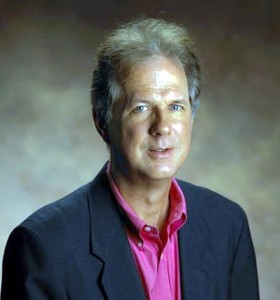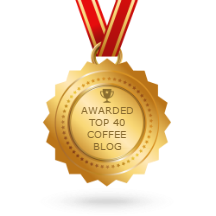Coffee growing, purchasing, certification practices, roasting, packaging, blends-versus-single-origin and preparation methods (this last one particularly interests me), as well as consumer education played out with big coffee industry players over a three-hour period in New York City this past week. The players included Illy’s Andrea Illy, Intelligentsia’s Doug Zell, Blue Bottle Coffee’s James Freeman, Gillies Coffee’s Donald Schoenholt and Bunn’s Karalynn McDermott, and an assortment of food service industry professionals. The moderator was Corby Kummer, of The Atlantic Magazine.
Not surprisingly, Andrea Illy touted blends while Doug Zell championed single-origin coffees. This simply represents their companies’ markets, and I would agree there’s a place for each. I’m not sure what was gained other than a chance for both to point out their products, okay but hardly worth the carbon footprint of a meeting. I could have written this before the event. Packaging methods represented another obvious difference. Illy, long recognized as a leader in packaging, believes in being able to preserve their product’s integrity under wraps, whereas the “small” roasters make a living by being close and selling freshness. Although Intelligentsia uses the usual one-way valve sealed bags, I doubt they do much more since their product is sold geographically and chronologically close to its roasting place and date. When you’re buying Intelligentsia, The Art of Coffee or Blue Bottle, you’re getting pretty fresh coffee. When you’re buying Illy, you’re getting coffee roasted on another continent probably six months or more earlier.According to their press release, there was consensus by the group about growing and processing coffee. Again, no surprise here. These are all buyers, not sellers. I didn’t notice Juan Valdez or any other coffee farmer in attendance. I will point out that Doug Zell represents the pinnacle of coffee buying practices. He was among the first coffee roasters to use direct trade, which I consider the best of all coffee buying strategies. Illy may be using direct trade too, but consider when Doug buys direct, it’s from a tiny farm, whereas Illy likely buys from a giant one. The two buyers are similar only in that they both buy from farms.
It is of note that Donald Schoenholt was in attendance. Donald is among the most knowledgeable and neutral of coffee industry professionals. He represents both family business interests and historical perspective. He’s seen it all and is tenderly honest, but honest he is. I haven’t yet spoken to him, but it’s a good sign that he was there.
No one representing consumers was there. Corby Kummer is the only one who doesn’t (to my knowledge) work full-time for a coffee company, but he represents mainstream media. No bloggers, no CoffeeGeek, no one who wakes up and has to brew the stuff personally. Like Washington, the coffee industry doesn’t do a whole lot of outreach to private citizens. That’s who they should be asking about packaging. Face it, Doug Zell doesn’t really need to know how to make a pound of coffee keep fresh until his next paycheck. None of those listed needs to know how to grind for their home French press.
My mother always said say something nice: The idea of discussing challenges and solutions to coffee is a good one. They just need to invite high-end consumers who know more about the final use of the product than they do. The coffee industry is always imagining they are the wine industry, hoping to rise to the upper echelons of pricing no doubt, but it’s more. They want to see themselves as snooty connoisseurs. They like the photos of Ernesto Gallo traipsing through vineyards wearing expensive jewelry.
But, coffee isn’t wine. The wine business can hold a seminar without consumers present because the consumer doesn’t do anything in the wine business. In coffee, the final product’s creation is 100% controlled by the consumer who must do everything to make the brewed coffee reveal all the hard work growing, processing, roasting and packaging it pay off. During this last stage, if the grind is too fine or too coarse, if the water to hot or too cold, if the measurements are off, the product is no better because all the first steps were done correctly. A vintner would break into a cold sweat at the thought of his wine being manhandled by the consumer at any stage of its creation and that consumer intervention is simply a reality in all home coffee consumption, the largest coffee growth area, in case they’ve forgotten.
So, back to good things: Good group of industry execs. Doug Zell and the other small batch roasters who are real entrepreneurs. Ms Illy, as heir to the Illy throne cannot be seriously called an entrepreneur but her family’s legacy is certainly worthy of respect. I’ve never heard of any of the food service,culinary folks, but their presence alone is good, considering the restaurant business hasn’t overall taken coffee seriously since it chased it out of the kitchen and into wait stations.
All they need to do to improve is add the farmers who grow it and consumers who brew it to the discussion.
Read more: http://www.sunherald.com/2010/10/29/2594186/leaders-from-coffee-cuisine-and.html#ixzz13wziluUl
Read more: http://www.sunherald.com/2010/10/29/2594186/leaders-from-coffee-cuisine-and.html#ixzz13wyU0upZ



Great post, Kevin! I had never thought about that very important distinction between wine and coffee.
Kevin, I love the honesty in your writing. Great insight in that very seldom does the consumer get invited to these meeting and without the consumers feedback and support we are just wind. I look forward to reading more of your blogs, articles and books.